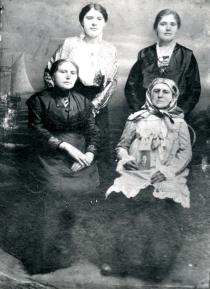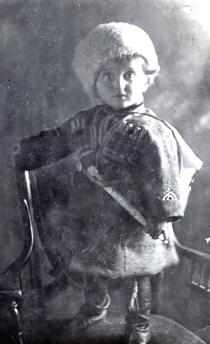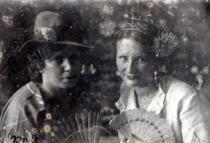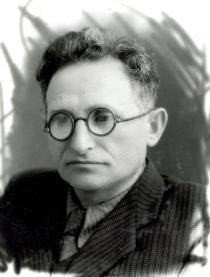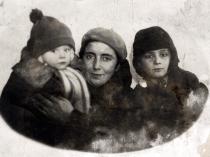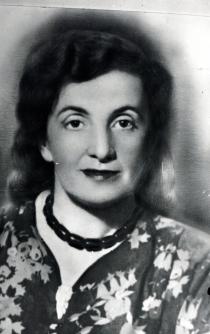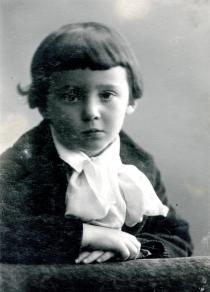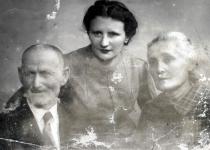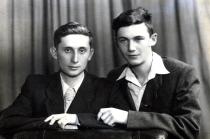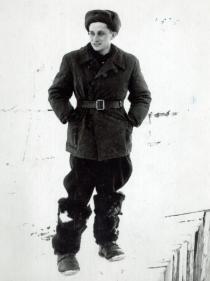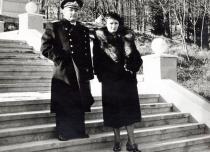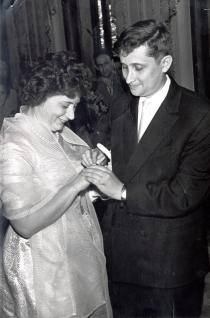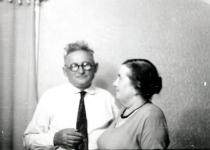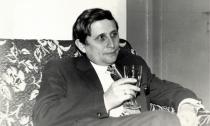Haim Golub, my grandfather on my father's side (left), Riva Golub, my father's younger sister (center), and my grandmother Esther Golub (right) on a photo taken in Kiev in 1945.
My father's father was born in Lenino, Western Belorussia, in 1865. His family was involved in transportation, farming and in the timber felling business. My grandfather had a big family. My grandfather was recruited into the army and served at Ladyzhyn. After his service term was over he married Esther Gerbinskaya. They married in the early 1890s. They had a traditional Jewish wedding with a chuppah and all the other rituals.
My grandfather owned a timber storage facility. I don't know how and when he purchased it, but he did well. He had the reputation of being a wealthy man in his town. He purchased timber and planks to sell to the villagers. It is my understanding that my grandfather was a timber specialist, but he was a poor businessman. I guess this was the role that my grandmother played, and later on my father took to it. Shortly before the revolution of 1917 my grandfather managed to win the wood cutting bid near Elsk in the vicinity of Gomel in Southern Belorussia. Jews were forbidden to participate in such bids, and a shtrohman [a proxy] acted on behalf of my grandfather. My father went to Elsk to make all the necessary arrangements for wood cutting and sawing.
My father's mother, born in 1874, came from Podolia. I don't know anything about her parents. After my grandparents married my grandmother stayed at home to raise their children. She was a housewife. My grandmother had a strong character and she kept the house. My father told me that she was involved in charitable activities.
My grandparents spoke Yiddish between themselves and with the children. They were also fluent in Russian and could read and write in Russian as well, and also in Yiddish. My grandfather and grandmother were truly religious people. They had their own seats at the synagogue. They observed Jewish traditions and followed the laws of kashrut. They always celebrated Jewish holidays and the Sabbath, when grandmother lit candles, and grandfather read prayers, and afterwards, the whole family ate at the festive table. My grandmother cooked the most delicious traditional food I had ever tasted. At Pesach she made the most delicious sponge cakes from matzah flour, strudels with jam, raisins and nuts, gefilte fish, chicken broth with dumplings, and stuffed chicken necks. Even during the war when special festive dishes were out of the question, my grandmother and father's sister Riva used to clean the everyday dishes with sand and ashes as required by Jewish tradition at Pesach. My grandmother observed Jewish traditions after the war, too. She was the mistress of the house.

